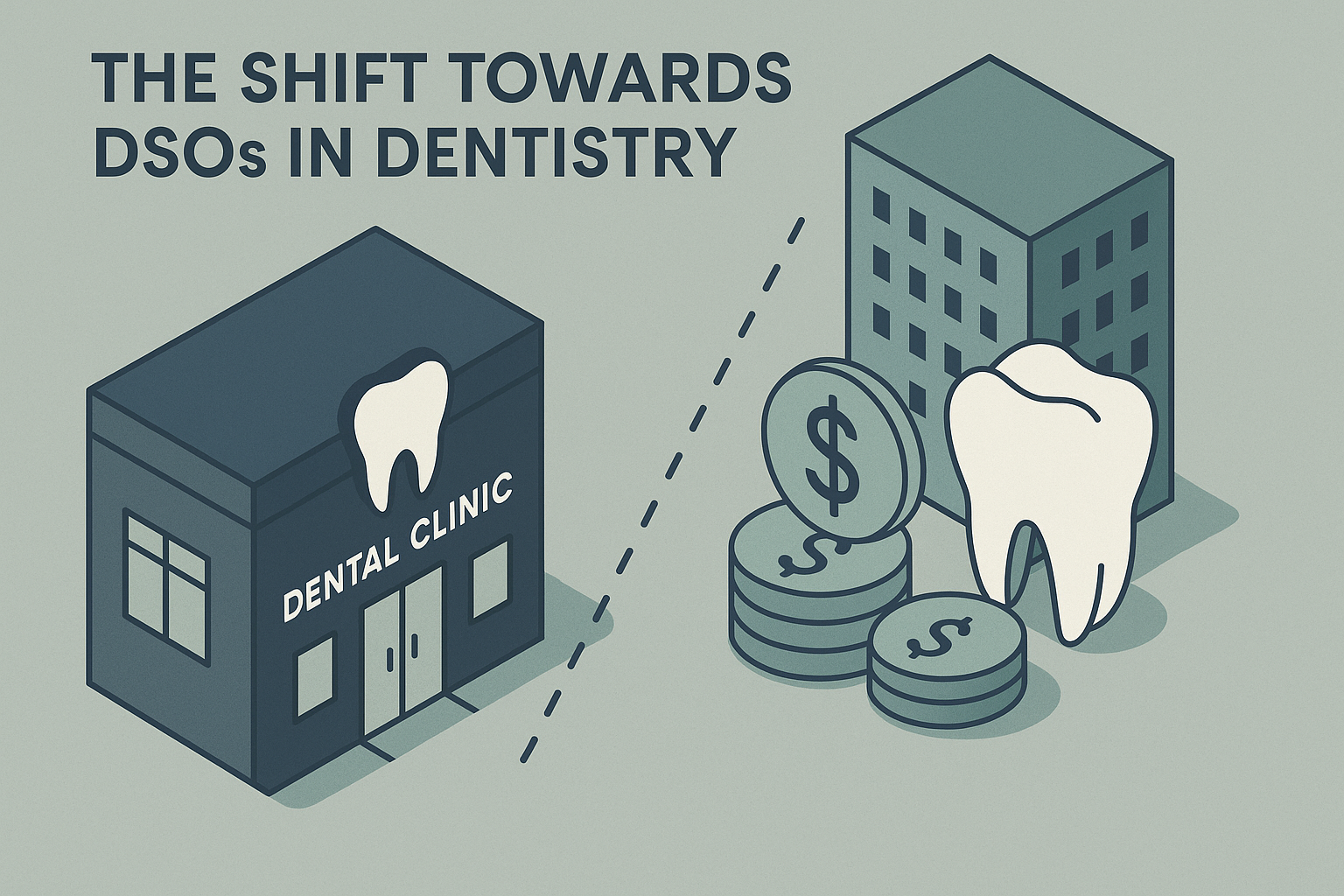Understanding DSOs in Dentistry: Insights from Dental A Team

In a stand-out episode of the Dental A Team podcast, hosted by Kiera Dent, seasoned financial advisor Ryan Isaac from Dentist Advisors offers deep insights into a subject that is rapidly shaping the future of dentistry: Dental Service Organizations (DSOs). The pair discuss both the opportunities and cautionary realities surrounding DSO partnerships, helping dentists and practice owners better understand their long-term financial and professional implications.
The Current Landscape of DSOs

The dental industry is undergoing a significant transformation. According to insights shared by Ryan Isaac, DSOs are poised to dominate up to 65% of the dental market within the next 5–10 years. This mirrors similar consolidation movements seen in other healthcare fields where economies of scale and centralized administration have propelled corporate growth. For Canadian dental practices—especially those in fast-paced markets like the Greater Toronto Area (GTA)—understanding this shift is paramount.
Unlike in the past, where most dentists pursued solo or small group private practices, younger dentists are now graduating into a landscape filled with DSO acquisition offers. The trend is reshaping industry norms, where practice ownership may become a strategic point of negotiation rather than a foregone conclusion.
A Key Investment Decision for Dentists

Many dentists in the GTA view their practice as their largest lifetime investment. It’s not only a financial asset but also one that significantly influences their career satisfaction, lifestyle flexibility, and mental well-being. That’s why any potential sale—especially to a DSO—should be approached with enhanced diligence.
As Isaac points out, there's a growing inclination among dental professionals to monetize their practice by selling to DSOs. However, while DSOs may appear to offer an easy exit and immediate liquidity, not all offers are equal. Factors such as alignment in values, patient care philosophy, and financial stability of the purchasing DSO should be evaluated rigorously.
Financial Implications of Selling to a DSO

Typical DSO acquisition deals involve structured payouts. Most commonly, 50% of the practice’s value is paid upfront while the dentist retains equity or a performance-based compensation package. While promising on paper, this model introduces financial unpredictability.
DDSs must account for the reality that nearly one-third of DSOs are reported to be experiencing financial strain. This puts equity-based payouts at risk, making due diligence more crucial than ever. For Canadian dental professionals aiming to preserve long-term financial stability, collaborating with regulated advisory teams familiar with provincial requirements and the Canadian Health Measures might add another layer of protection.
Challenges of Managing DSO Relationships

Kiera and Ryan discuss the emotional and administrative burden that comes with evaluating multiple DSO offers—a dilemma affecting many dentists in large urban centres like Toronto and Mississauga. With cold calls, emails, and letters arriving almost daily, it can be difficult to distinguish between aggressive sales tactics and genuine opportunities.
For dentists who have cultivated their practice over decades, selling to the wrong buyer can be more than just a financial misstep—it can also compromise staff morale, patient relationships, and the quality of care. Creating a due diligence checklist, possibly in consultation with firms like EBIKO Dental, can help align acquisition decisions with long-term goals.
Protecting the Integrity of Dentistry

One of the most debated topics in DSO discourse is whether mass consolidation dilutes the core values of dentistry—namely, individualized patient care, clinical autonomy, and high ethical standards. According to Kiera, the fear is that the industry could follow a corporate trajectory wherein decisions are driven by profit margins at the expense of patient outcomes.
This is particularly relevant in the Canadian context, where dental regulations are managed provincially and professional liability standards are tightly monitored. Dentists must weigh whether partnering with a DSO will allow them to maintain compliance with local health policies while still meeting their financial goals.
Are There Alternatives?

For dentists not inclined toward corporate affiliations, group practice models, cooperatives, or strategic partnerships with locally governed management services may offer appealing alternatives. These setups can preserve clinical authority and team culture while securing administrative relief and business efficiency.
EBIKO Dental supports clinics across Toronto and beyond with access to specialty dental equipment, helping practices maintain high standards without relinquishing control. Alternative infrastructure solutions such as centralized software, diagnostics, and sterilization systems can also reduce dependency on DSOs while meeting Health Canada compliance requirements.
Conclusion

The exploration of DSOs in modern dentistry raises critical questions regarding ethics, stability, and professional autonomy. While DSOs can offer structured exits and growth potential, they are not without financial or cultural risk. For dental professionals in Canada—particularly in the GTA region—considering a DSO affiliation requires a well-informed, patient-centered strategy.
By working with reputable financial consultants and sourcing trusted dental technologies, such as those found at EBIKO Dental, dentists can ensure that any transition—whether to corporate care or independent evolution—upholds the integrity and long-term viability of their practices.

